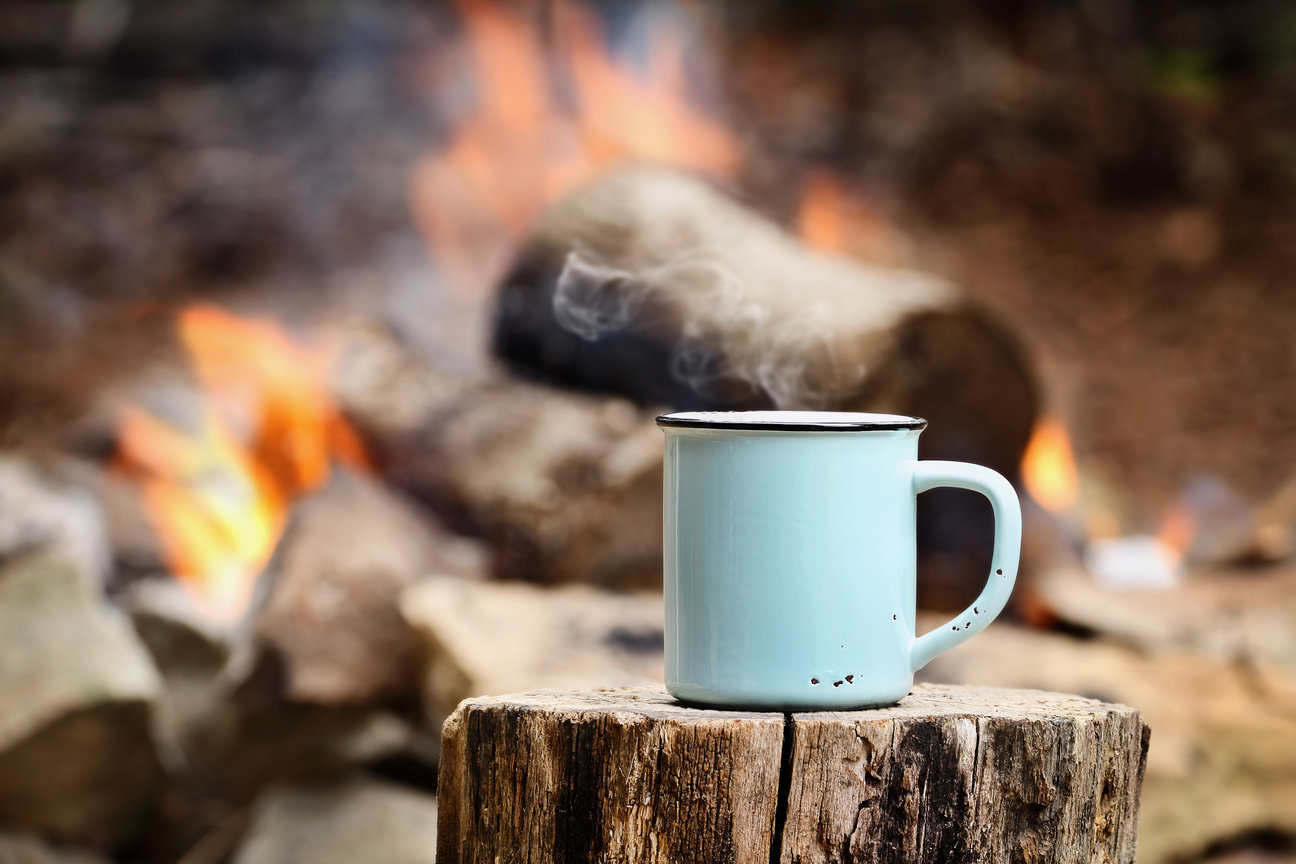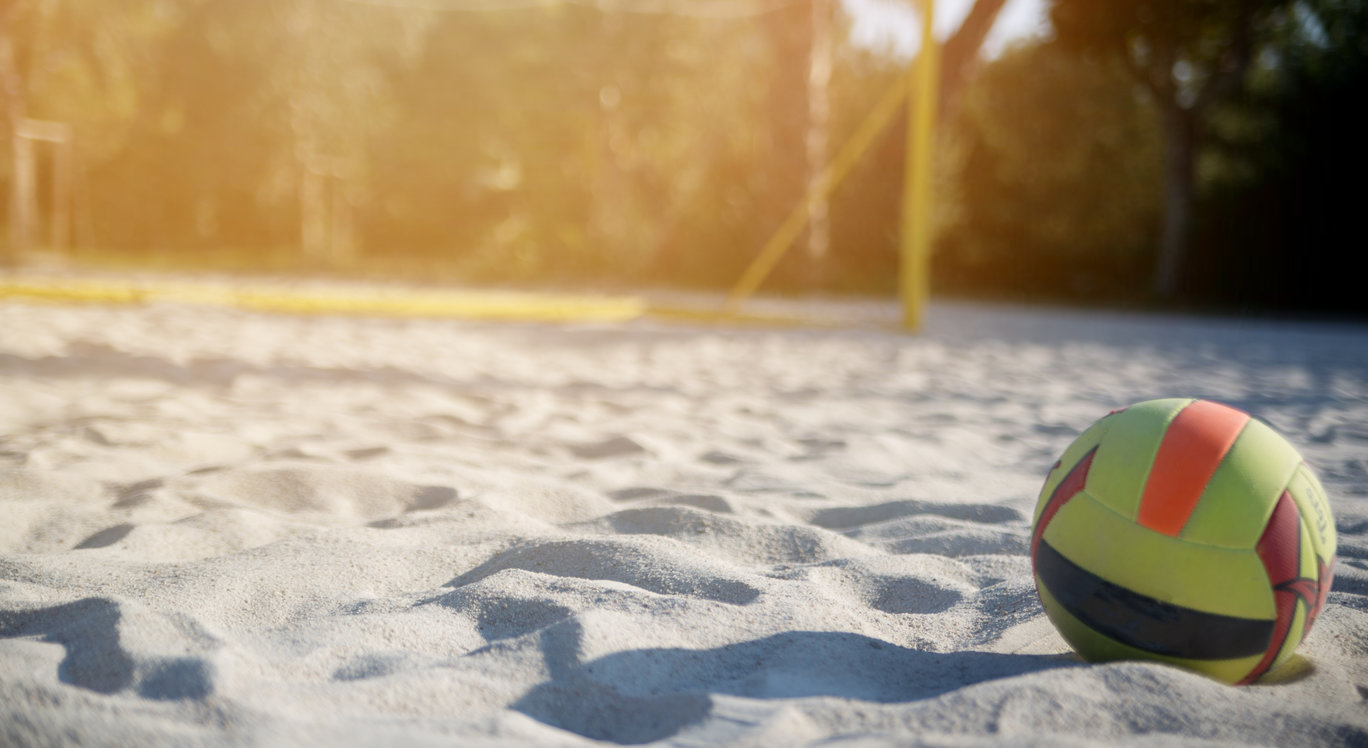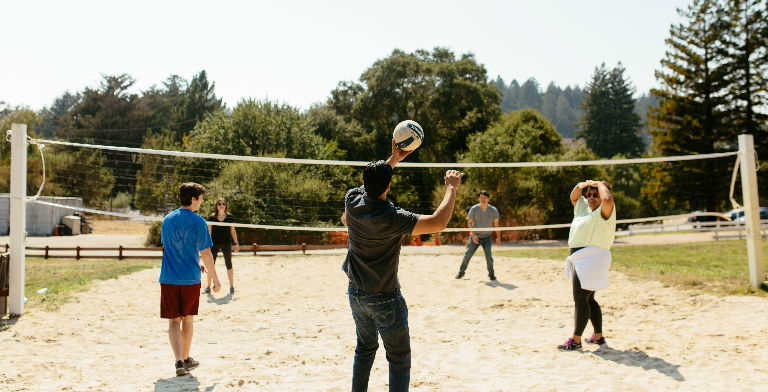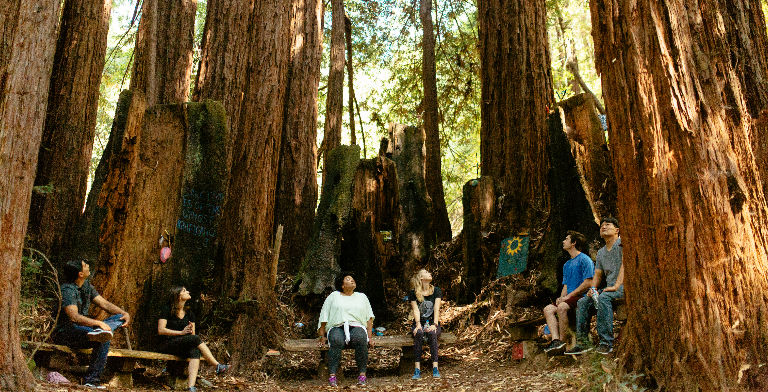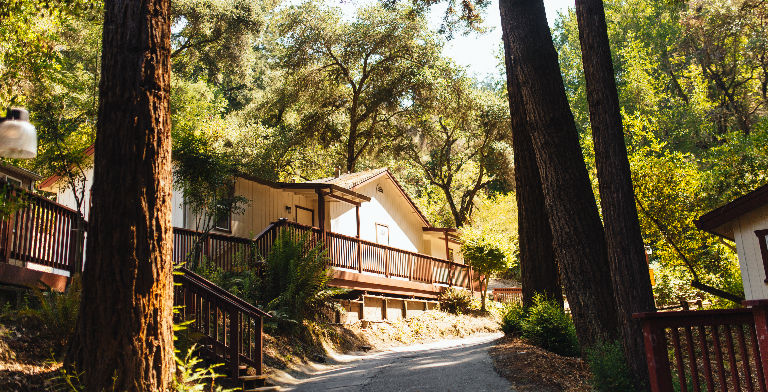The Camp Recovery Center provides comprehensive, personalized treatment for adolescents and adults who have been struggling with addiction and co-occurring mental health challenges. Located near Scotts Valley and San Jose, CA, The Camp provides premier substance abuse rehabilitation and mental health treatment.
Mental Health Treatment
Addiction and Mental Health Treatment Near Santa Cruz & San Jose
Many people who struggle with substance abuse and addiction are also experiencing one or more mental health disorders.
In some cases, people begin to abuse alcohol or other drugs in a misguided attempt to self-medicate or numb themselves to the symptoms of a mental health disorder. In other cases, continuing to struggle with chemical dependency causes a person to develop a co-occurring mental health disorder.
Regardless of which challenge arises first, the combination of addiction and mental health concerns can have a profound negative impact on a person’s life and complicate their efforts to get effective help.
If you or someone you care about has been struggling with addiction and one or more mental health disorders, it’s important to seek treatment at a center that can identify and address all the obstacles that have been preventing you from living a healthier life.
Addiction and mental health disorders are treatable conditions. When you seek treatment at a residential center that can provide you with comprehensive, personalized care, you can experience increased quality of life. With the right type and level of care, you can experience relief from the symptoms of your mental health disorder and achieve long-term recovery from addiction.
For more than 35 years, The Camp has been helping individuals who are struggling with addiction and mental health challenges. With our help, you can live the healthier life that you deserve.
Helping a Loved One
Helping a Loved One or Family Member Enter Mental Health Treatment
If someone you care about has been struggling with addiction and mental illness, you may be confused, afraid, or even angry. Please know that these are valid and understandable initial reactions. However, it’s important to realize that the situation is not hopeless, and you are not helpless.
Your loved one needs professional treatment. You can play an essential role in getting them the care they need. Please consider the following:
- Educate yourself about addiction and mental illness. Research the ways that chemical dependency and mental health challenges can impact a person’s life. If you know what type of mental health disorder your loved one has developed, learn about its signs, symptoms, and effects. The more you understand what your loved one is experiencing, the better prepared you’ll be to provide meaningful assistance.
- Research the types of treatment that have helped others who were dealing with addiction and mental health concerns. Identify treatment centers that provide the type and level of care that seems to be the best fit for your loved one.
- Communicate with your loved one. Express your concerns, emphasize your love and support, and share your research. Be prepared for pushback, but don’t judge or issue ultimatums. Getting your loved one to enter a treatment program may take time. Let your loved one know that you care. Keep the lines of communication open.
- Get help for yourself. Enlist a small group of trusted friends or family members to assist you. You can work together to conduct research, care for your loved one, and support one another. If necessary, make an appointment to talk with a counselor or therapist. You can’t be the best source of support for your loved one if you’re neglecting your own needs.
Finally, remember that recovery from addiction and co-occurring mental illness can be a long process. Your loved one will experience successes and setbacks along the way. Set reasonable goals, manage your expectations, and plan to be a source of love and support for your loved one every step of the way.
Why Consider Us?
Why Consider Mental Health Treatment at The Camp Recovery Center, Located Near San Jose & Santa Cruz, CA
On their own, addiction and mental illness can have dramatic negative impacts on a person’s life. When these challenges occur at the same time, the potential for significant harm can increase considerably.
The damage that can occur when a person fails to get proper care for addiction and co-occurring mental health challenges can vary depending upon several factors, including the type of addiction they are experiencing and the nature and severity of their mental health concerns.
Untreated addiction and co-occurring mental health disorders can affect virtually every part of a person’s life. In the absence of effective professional treatment, a person who struggles with addiction and mental health concerns may find it difficult or impossible to attend school, get and keep a job, establish financial independence, and otherwise fully engage in a productive and satisfying life.
Mental health challenges that occur in conjunction with addiction undermine a person’s ability to care for themselves, which can increase their risk for worsening mental health challenges as well as a host of physical health problems. Untreated mental illness and addiction can also strain or ruin a person’s relationships, which can lead to withdrawal, isolation, and the loss of essential interpersonal support.
However, when a person seeks proper professional treatment for addiction and mental illness, they can reduce their risk for continued harm and begin to heal from past damage.
When you or someone you care about makes the courageous decision to enter a residential treatment program to get help for addiction and co-occurring mental health challenges, you take a significant step toward a much healthier and more hopeful future.
Types of Treatment
Types of Mental Health Treatment Offered at The Camp Recovery Center
The Camp Recovery Center offers superior treatment to adolescents and adults who are dealing with chemical dependency and co-occurring mental health challenges. Our nationally accredited residential treatment center features a wide range of therapeutic interventions that are proven to help people achieve true and lasting healing in mind, body, and spirit.
Our staff of highly trained professionals, which includes nurses, addiction counselors, therapists, and drug rehabilitation professionals, works closely with each person who is entrusted to our care. These experienced professionals formulate individualized rehab plans to best prepare each person to make sustained progress.
Depending upon individual need, your personalized plan to treat addiction and a co-occurring mental health disorder may include the following elements:
Detoxification: If you arrive at The Camp with alcohol or other drugs in your system, you may need to complete detox before you can fully engage in residential treatment. If you need detox, we’ll coordinate with an off-site doctor to determine the most effective and appropriate detox protocol for you.
Medication management: Some individuals who are dealing with mental health disorders can benefit from certain medications to alleviate their symptoms. If we determine that medication management should be included in your personalized treatment plan, you will meet with a psychiatrist once per week so that medications can be prescribed, monitored, and, if necessary, adjusted.
Individual therapy: Individual therapy can help you process your feelings, emotions, triumphs, and setbacks. At The Camp Recovery Center, individuals who are struggling with mental health challenges in addition to addiction are able to participate in individual sessions with case managers twice each week.
Group therapy: Group therapy is an integral part of our center’s treatment for mental health disorders and addiction. Multiple groups are offered every day at The Camp. Topics that may be addressed during these groups include relapse prevention, 12-Step Recovery, SMART Recovery, and self-help. The following are examples of the types of groups that you may participate in while you’re receiving treatment for addiction and mental illness with us:
- Age groups
- Men’s group
- Women’s group
- Detox groups
- Focus groups
- Cognitive behavioral therapy (CBT) groups
- Activity groups
- Experiential groups
- Music/poetry groups
Family therapy: We offer family therapy sessions twice each month. These sessions, which are led by marriage and family therapists, can help you repair and rebuild relationships with the loved ones who are closest to you. Family therapy takes place at our rehab center, which is easily accessible from the San Jose and Santa Cruz, CA, areas.
Experiential therapy: While you’re receiving treatment for addiction and co-occurring mental health challenges at The Camp, you’ll have the opportunity to participate in a wide range of experiential therapies, such as the following:
- Gym sessions
- Acupuncture
- Yoga
- Meditation
- Games
Community meetings: We hold community meetings every morning, seven days a week. These meetings are led by individuals who are receiving treatment. They provide a forum for discussing the day’s agenda and addressing any issues that are relevant to the group. These meetings can help you develop healthy and productive relationships with others in early recovery. These relationships can be beneficial to you during and after your time at The Camp.
Discharge planning: The day you arrive at The Camp, your treatment team will begin to plan for your eventual discharge. Our detailed discharge planning services ensure that you’ll have the support you need to maintain and build upon the progress that you make with us. As with all aspects of treatment for addiction and mental health concerns at The Camp, discharge planning is a personalized process that reflects your unique strengths, needs, and goals.
To learn more about the types of treatment we offer for individuals who have been struggling with addiction and mental health challenges, please contact The Camp at your earliest convenience. We look forward to answering all your questions and helping you decide if The Camp is the perfect place for you or a loved one.








